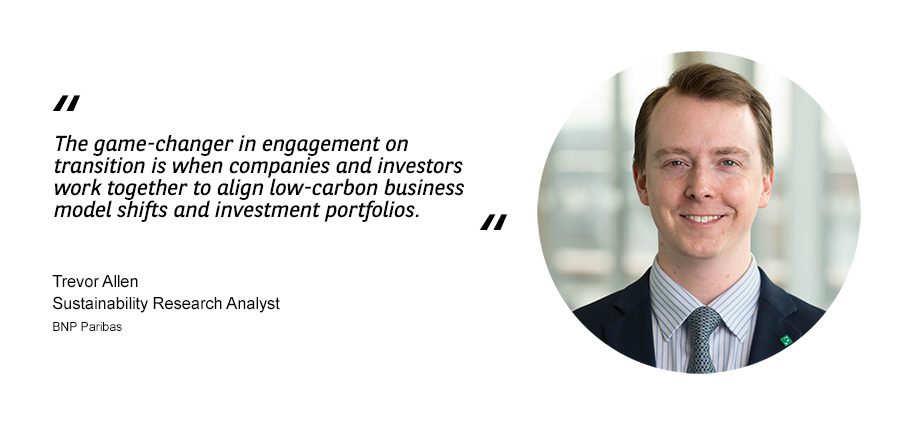Transition bonds have the potential to play a significant role in efforts to achieving the 2°C low-carbon economy: this was the focus of discussion at the Environmental Finance 2019 conference in London, where BNP Paribas sustainability research analyst Trevor Allen led a panel of industry leaders. This low-carbon goal was set as part of the Paris Agreement of the 2015 United Nations Climate Change Conference (or COP 21), with signatories agreeing to aim at keeping global warming to within 2°C above pre-industrial levels.
Sectors with high negative environmental impact could deploy transition bonds as part of their financing toolkit to help nudge the transition of their businesses. Proceeds could be used to finance transition technologies, such as less carbon-intensive alternatives, allowing for a shift to a more sustainable business model.
Taking the agriculture sector as an example, the panel discussed the causes of deforestation – and how investors could directly integrate business model considerations into their analyses of companies.

The conference, which took place in June, featured leaders from the world of sustainable finance, corporates, investors, and international institutions, including central banks and the United Nations. It was held on the same week the European Union launched its taxonomy for green activities – considered vital for the future growth of the green bond market.
For Trevor Allen, “the game-changer in engagement on transition is when companies and investors work together to align low-carbon business model shifts and investment portfolios.”
